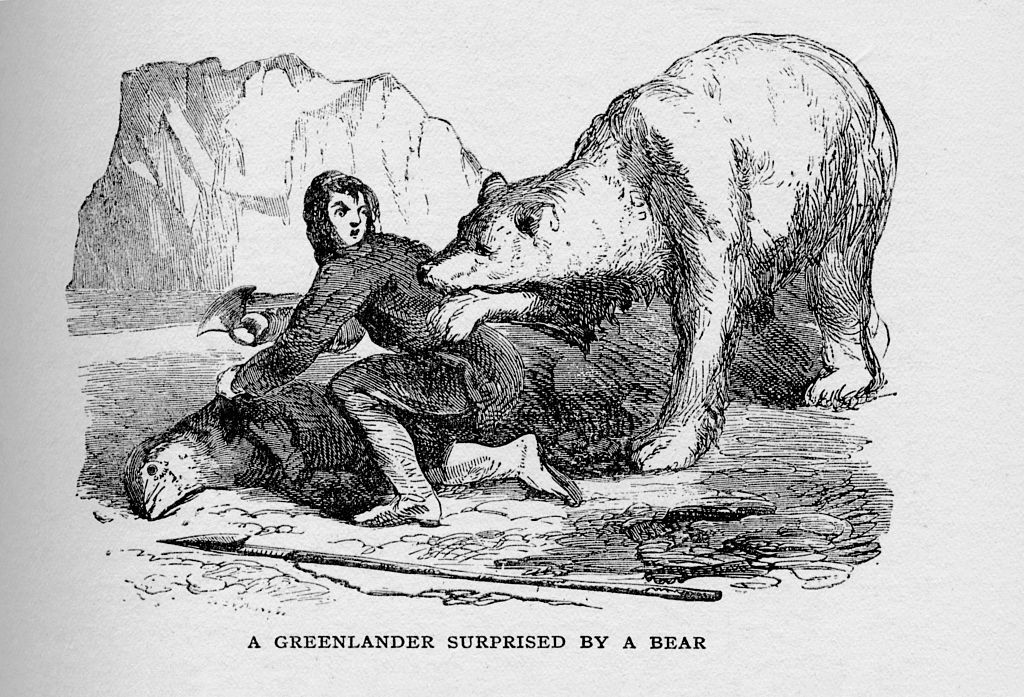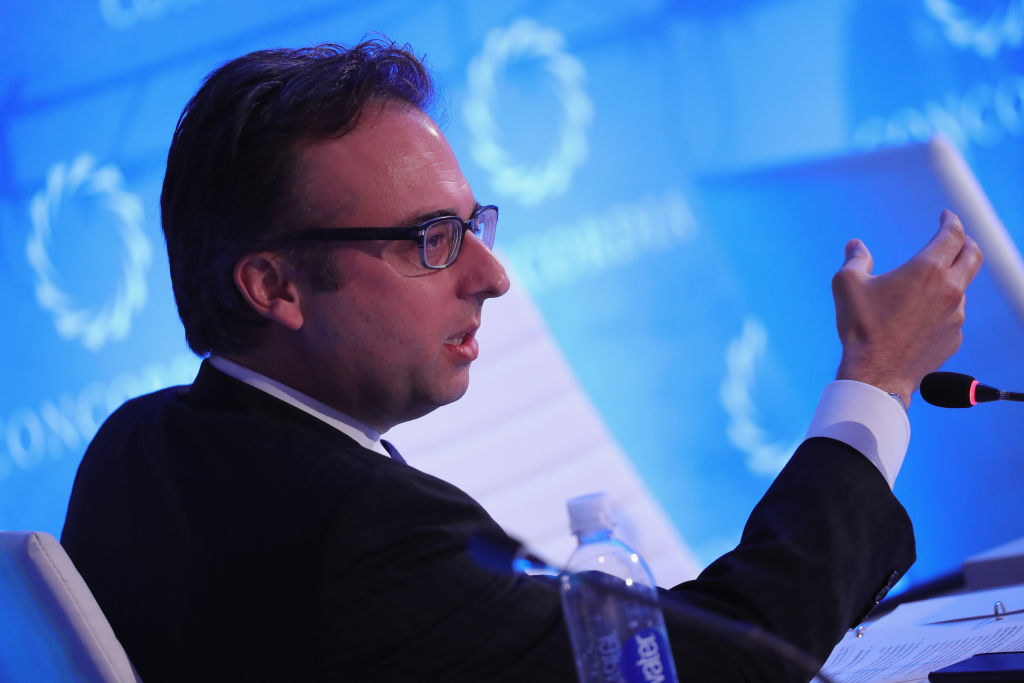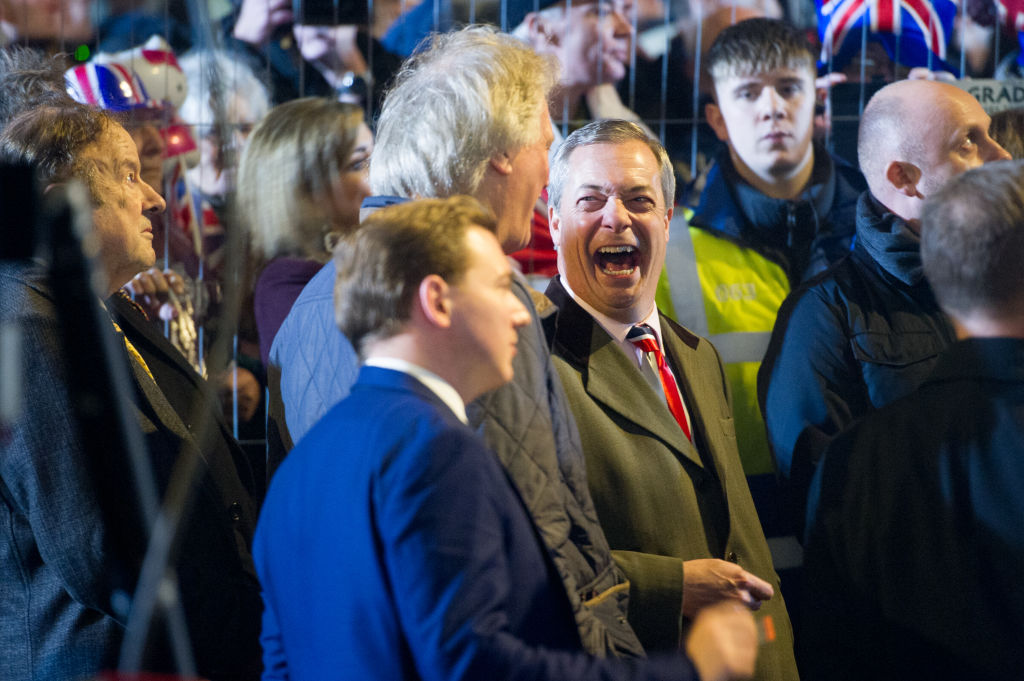Perhaps the most sensible thing said in the hysterical particle-accelerator that was world opinion following President Trump’s announcements on tariffs came from Adrian McLaughlin, an Irish whiskey maker: “This is not the end of the world. We’ll work it out.”
Prophetic words indeed – but only if the EU reacts with the ice-cold calm of a rational party rather than a would-be global player who has seen the team sheet and suddenly realises for the first time that he’s not even on the subs’ bench. (I know, I know, our beloved President is a she, but most of the EU’s governing politburo are men.) Instead of staying silent, the EU is blowing gaskets in its respective component parts, and worst of all, its media are placing the most hysterical interpretations possible on Trump’s words. To be sure, analysing his casual asides and his sudden improvisations can be rather like examining a chicken’s entrails in order to calculate the orbits of Mercury’s moons, but if one can’t confidently differentiate between a perihelion and a liver, the wisest course of action is silence. Alas, the media generally prefers speak over meek.
Last weekend, the widely-respected Financial Times chose as its second lead a story about Italy’s response to Trump’s initiative: “Meloni forced to choose between the US and the EU“. That is a pretty melodramatic scenario at a time of great crisis for everyone. Was Giorgia Meloni going to break ranks with Italy’s partners in the EU and somehow or other side with Donald Trump? Aside from the legal difficulties – roughly the equivalent of a lung transplant from a turtle to a chimpanzee – how was she going to break the news to the world? By arresting and deporting the EU’s Border Police, and perhaps importing the Arizona National Guard?
The opening paragraph increased the drama. “Giorgia Meloni is under pressure …to choose a side in the transatlantic trade war as she wields an effective veto over a push by some big member states to hit back hard against EU tariffs.”
Note the use of the word “war”: that has clearly been declared in the editorial offices of The Financial Times, though no tariffs have yet been imposed, and indeed, the newspaper even reported that exports to the US from the EU have been accelerated to miss the tariff boom before it comes down. That it might not even come to that was apparently not in the minds of anyone in the FT: war is underway, and to the trenches everybody.
Except Meloni was not reading either the EU script or the FT’s: in advance of Trump’s announcement, and largely anticipating the thrust of his intentions, she said that it was “childish” and “superficial” to suggest that she had to choose between the US and the EU. In other words, even before the headline was written, the Italian prime minister had declared the opposite – but the FT went ahead with it anyway. Moreover, although she criticised Trump’s new tariffs, saying they were “wrong”, she called for calm and frank negotiations. And she sounded a warning note that should have been the headline and a caution to us all: “”I am not convinced that the best choice is to respond to tariffs,” adding that Italy wanted tariffs removed, not multiplied.
But of course, at a time of great tension, a voice of measured reason contradicts the common appetite for more excitement. The average journalist, given the option of melodrama and mellow karma, will opt for the former every time. Which was no doubt the preference of the FT sub-editor who headlined another piece: “Impact Winners and Losers in labyrinth of protectionism“. But there is as yet no protectionism, no winners, no losers, no war and no labyrinth: what there is plenty of is complexity, which does not sell newspapers. Whereas trouble sells newspapers – even when it makes the task of preventing the Trouble even beginning or simplifying it once it is underway vastly more difficult. How many important decision-makers and journalists genuinely believed last weekend (and still do) that Meloni was torn between choosing between the EU and the US?
As a columnist who unabashedly supported Trump during the last election campaign, I admit that I watched his performance on television with horror, hearing flames crackling through my pension funds like the Great Prairie Fire of LA. Yes, he is like a perpetual little boy with a box of matches and a bale of dry straw, and this time he’s playing not with his own assets and borrowings, as he did when he created his huge property portfolio, but with the savings of the world. This will probably add another measure of chutzpah to an individual who absolutely did not need any more hormones in an endocrinal system that is popping as furiously as a July 4 meets November 5 crossed with Halloween and 12.01am, January 1. But even the penguins and the polar bears on icy ends of the globe knew that: all the EU had to do was to listen carefully and say nothing and wait until the Trump sugar-rush had died down. For is Trump not surrounded by wise men and women? Were they not praying for calm and reason from the EU? What did they get? They got two rabid reindeer: Donner & Blitzen, plus a ruminative Roman.
All three creatures know that the US economy is unsustainable in its current model. Washington pays more on servicing its national debt than it does on defence, and its budget for the latter exceeds the entire military budget for all the EU countries put together. That is a cultural and monetary perversion that should never have been allowed to happen in the first place. That the EU did not choose to pre-empt Trump’s Rose Lawn speech with unconditional offers to remove all tariffs on US goods being sold in Europe bespeaks a corporate sclerosis that, unchecked, will choke the EU – unless any of the many other diseases its wanton lifestyle has exposed it to – fiscal gonorrhoea, military dyspepsia, mildew of the brain – kills it first.
The misreporting of economic policy is not new; indeed, it is a staple of financial journalists and economists whose preferred policies are being ignored. The great Thomas Sowell cites the example of poor Andrew Mellon, the Secretary for the Treasury in the 1920s, whose tax-cuts to raise more revenue (which is what they achieved, and spectacularly so) are still being portrayed by liberal-left economists and journalists of that ilk as applying to the rich only, whose expenditure – “trickle-down” in the weighted jargon used by such prejudiced people – might then benefit a lucky few of the poorer classes. Breadcrumbs from the table, in other words, when it was in fact, the very opposite. Not merely did now-lower taxes cause the rich to invest in productive industry rather than in low-yield, no-risk economically unproductive government and state bonds, but they also reduced the tax burdens on much of the working and middle classes.
To this day, misreporting economic policies is not merely commonplace, but also addictive: who would not prefer to be writing a news story that is full of conflict and drama rather than full of tightly-knitted, small-font statistics alongside turgid reasoning? In the ribcage of most journalists beats the heart of a war-correspondent as the North Vietnamese Army enters Saigon or the Taliban take Kabul. Of course, they cannot get the emotional or adjectival high of these actual events, but they can feel the electric frisson coursing through their fingertips as they frenziedly tap their keys and warn of a tariff war, along with doom, gloom and the dread simoom.
The fustian truth is that there have been many more crises than major wars in the 20th and 21st centuries, as an uncountable number of potential conflicts were averted by statesmanship, prudence and wordless thoughtfulness. To be sure, the world has certainly shifted on its axis, and the day after tomorrow will not in any way resemble the world of which Donald Trump became the leader of its free components last November. Caution and counsel are now required in chancelleries everywhere, and in the meantime, we should all bear in mind the distilled wisdom of an Irish whiskey-maker: “This is not the end of the world. We’ll work it out.”
Kevin Myers is an Irish journalist, author and broadcaster. He has reported on the wars in Northern Ireland, where he worked throughout the 1970s, Beirut and Bosnia.





Ready for an ‘abomination?’ In American history, tariffs have consequences